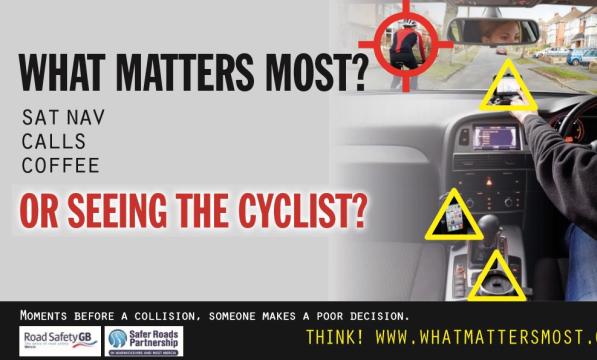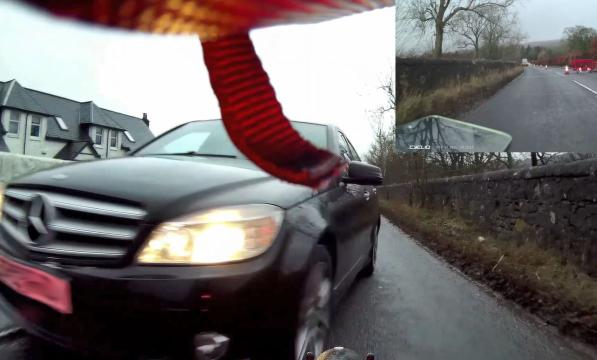Tougher sentences in Scotland for drivers who kill cyclists

New guidance means those who kill a cyclist while driving carelessly or dangerously in Scotland could receive a stiffer sentence.
For the first time, judges will be able to ensure a longer term in prison for drivers who kill a vulnerable road user.
Jim Densham, Cycling UK’s campaigns and policy manager in Scotland, appeared on BBC Scotland’s The Seven news programme to react to the news. He later commented:
"Cycling UK is pleased to see the new recommendations and believes it can provide the consistency needed to avoid the tragedy of lenient sentences where loved ones of those killed feel justice has not been done.
"It’s time for these sentences to fit the crime and this is a good step to make the consequences of irresponsible driving a real deterrent to drivers.
"Cyclists are vulnerable on the road and anyone driving a car should be looking out for them and must give them space.
"It’s therefore right that judges hand down a tougher sentence to careless and dangerous drivers for killing a cyclist who has little protection from their driving behaviour."
Tougher sentences
Subject to approval by the High Court, the Scottish Sentencing Council’s new guidance for judges will be used in court towards the end of a trial when passing sentence on someone who kills while at the wheel.
The new guidance applies to those judged to have been driving carelessly or dangerously and includes new recommended sentences for a variety of situations.
In the most serious cases of causing death by dangerous driving a 12-year sentence can be given.
Judges can now take into account whether the person killed was a cyclist or other vulnerable road user and increase the sentence length accordingly.
The Scottish Sentencing Council has decided that vulnerable road users have less protection than people in cars, and drivers should adjust their behaviour when driving to keep them safe.
This mirrors changes to the Highway Code from 2022 – secured after more than a decade of campaigning by Cycling UK – which included a ‘hierarchy of responsibility’ for road users (Rule H1), which ’places those road users most at risk in the event of a collision at the top of the hierarchy’.
It also states that ‘those in charge of vehicles that can cause the greatest harm in the event of a collision bear the greatest responsibility to take care and reduce the danger they pose to others’. That’s those driving the largest vehicles.
Judges can also now give tougher sentences when the death arose because of tailgating – considered to be dangerous and aggressive driving, and when involved in a police chase.
Audrey Fyfe
The changes are also designed to make sentencing more consistent and reduce lenient sentences.
From 2011-2013 Cycling UK helped fight for justice for Audrey Fyfe, a member who was killed by driver Gary McCourt whilst cycling in Edinburgh.
McCourt was given an absurdly lenient 5-year driving ban and 300 hours of community service – this despite having killed another cyclist while driving in 1986.
Cycling UK supported a campaign for an appeal against the judgement but at appeal the original sentence was upheld.
In addition to consistency, the new guidance aims to increase clarity for the public, and especially the loved ones of those killed – helping them to understand why a road criminal has received the prison term given.










